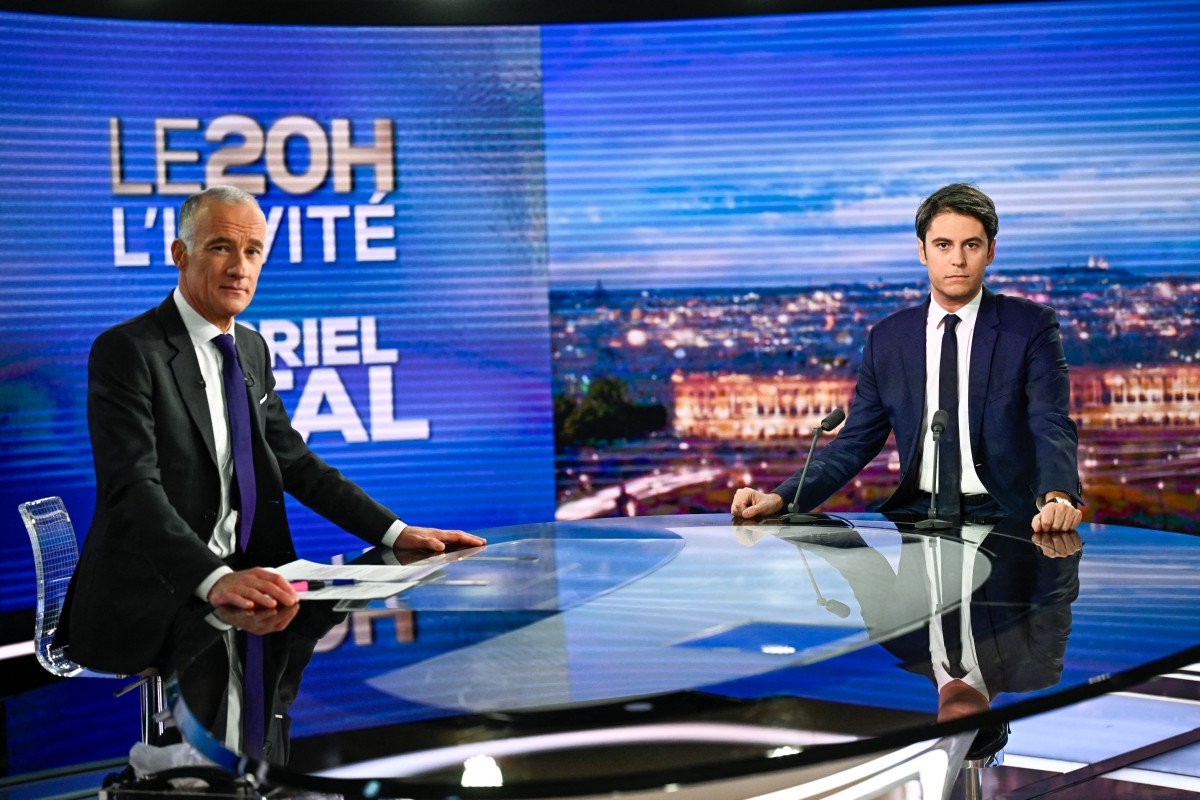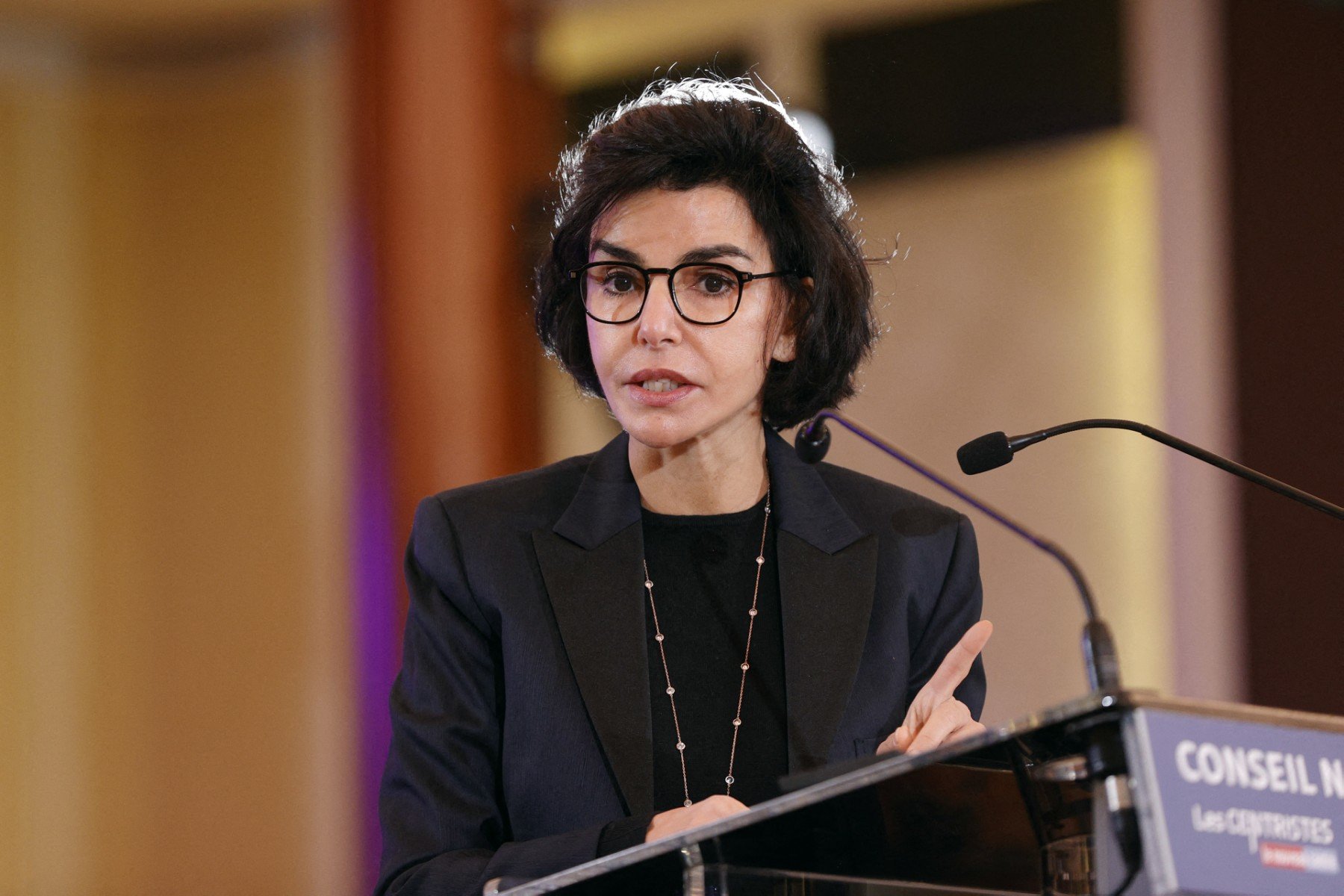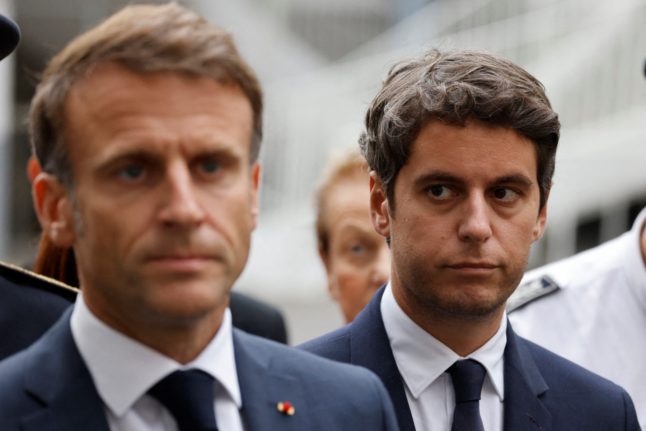The new ministers were eventually announced on Thursday evening in an official statement from the presidential palace.
However most of the of names had already been leaked to French media earlier in the evening.
Attal chose to keep heavyweight ministers, such as Finance Minister Bruno Le Maire, Interior Minister Gérald Darmanin, and Justice Minister Éric Dupond-Moretti in their posts.
Sébastien Lecorno also kept his job as the Minister for the Armed Forces.
The big ministerial job that changed hands was the foreign minister. Catherine Colonna leaves the role that will be taken up by Stephane Sejourné, who was the head of President Emmanuel Macron’s political party Renaissance.
Sejourné was also previously in a civil partnership with Attal, France’s first openly gay prime minister, but their relationship is now believed to be over.
This left all the top ministerial positions in the hands of men.

“What I want is action, action, action” and “results, results, results,” Attal told TF1 television, praising the “energy” of his ministers who he said were “committed 200 percent to meet the expectations of the French”.
Attal said he’ll fulfil Macron’s promise to cut taxes for the middle class, though he wouldn’t be tied into a timetable.
In the most surprising move Rachida Dati, the former Justice Minister during the presidency of Nicolas Sarkozy and member of the right-wing opposition Republicans party, was named the new culture minister.

Amélie Oudéa-Castera will replace Attal as education minister but will also keep her previous brief as minister for sport and youth – creating what the French press dubbed a “super-ministry”.
Castera, 45, a former French tennis champion who already faces an immense task overseeing the Olympic Games this summer in Paris.
Catherine Vautrin, a former spokesperson for ex-President Nicolas Sarkozy and a minister under ex-President Jaques Chirac was named minister of labour, health and solidarity, whilst Marc Fesneau kept his job as agriculture minister.
Another minster who remains in his post is the Christophe Bechu the ecology minister. Sylvie Retailleau keeps her job as Minister for higher education.
Commentators see the reshuffle as essential to relaunch President Emmanuel Macron’s centrist presidency for its last three years and prevent him becoming a “lame duck” leader after his party lost its overall majority in 2022 legislative elections.
Asked about his own presidential ambitions, Attal said “2027 is not the subject, what interests me is 2024.”
The appointments appeared to mark a new shift to the right for Macron’s centrist government, with the defection of Dati causing a furore within the Republicans.
Eric Ciotti, leader of the Republicans party, announced Dati would be excluded from the party following her appointment, accusing her of “placing herself outside our political family”.
Colonna’s departure had been widely expected, with the former ambassador to the UK seen by critics as not being a loud enough voice for French foreign policy at a time of multiple global challenges.
When Macron came to power in 2017, his government mixed figures from the right and the left but the new cabinet is prominently sprinkled with right-wing names.
The appointment of Attal and the reshuffle are seen as crucial for Macron relaunching his government with an eye to June 2024 European elections where the far right under Marine Le Pen’s protege Jordan Bardella, 28, are leading in the polls.
Cabinet ministers are also keenly aware that Macron cannot stand again in 2027 presidential elections which will represent Le Pen’s best ever chance to take the Elysee.
High-ranking civil servant and former treasury director Emmanuel Moulin, 55, has been named Attal’s chief of staff but the premier is also bringing with him from the education ministry four young special advisors of his generation dubbed “the power rangers” in French media.
Who are the main ministers:
Interior minister – Gérald Darmanin
French media predicted that Darmanin would remain in his post, having reportedly received assurances from President Emmanuel Macron himself. Darmanin, another young high-flyer, had received the biggest political setback of his career in December when an immigration bill was initially rejected in parliament. French media also reported that a change in the interior minister a few months prior to the Olympic Games could have been “badly received”.
Stephane Sejourné
The 38 year-old Sejourné is the head Macron’s movement Renaissance and was also in civil partnership with PM Attal. Their relationship is believed to be over however.
Finance minister – Bruno Le Maire
Le Maire was set to remain in his position. Hailing originally from the centre-right of the political spectrum, Le Maire has been Macron’s finance minister since the president first came to power in 2017.
Justice minister – Éric Dupond-Moretti
The justice minister was expected to maintain his post. The former high-profile criminal lawyer has attracted controversy in the past, namely for the clients he chose to represent, which included Julian Assange. As well as a lawyer he’s also an entertainer, and previously toured a one-man show telling anecdotes from his legal career.
Armed forces minister – Sébastien Lecornu
Originally speculated as a contender for the role of prime minister, French media reported that Lecornu would stay in his position as armed forces minister. The role was reportedly offered to the former prime minister, Élisabeth Borne, on Monday, who apparently refused it.
Government spokesperson – Prisca Thévenot
French media reported that Thévenot would take up the post, replacing Olivier Véran who held the position since July 2022. In July 2023, she was appointed to the role of junior minister for youth. Thévenot also serves as an MP from the Hauts-de-Seine département with President Macron’s centrist Renaissance party. According to French media, she is a close friend to the prime minister.
Labour minister – Catherine Vautrin
Former MP for the centre-right Republicans party, Catherine Vautrin, will reportedly be appointed Minister of Labor, according to TF1 sources. She will replace Olivier Dussopt, who was appointed in May 2022 and oversaw Macron’s landmark pension reform.
Sport and Education minister – Amélie Oudéa-Castera
Oudéa-Castera will take over as minister of education, the post previously held by Prime Minister Gabriel Attal, while maintaining her position as minister for sport and Olympic Games. Political commendaters noted that she may not have “much room to manoeuvre”, as the PM promised to “take the subject of schools with him”.
Culture minister – Rachida Dati.
In a surprise appointment, the former minister of justice under former president Nicolas Sarkozy, Dati will take over as minister of culture. She currently serves as the mayor of the capital’s 7th arrondissement and is a member of the centre-right Les Republicains party. She will replace Rima Abdul Malik.



 Please whitelist us to continue reading.
Please whitelist us to continue reading.
Member comments